Lea Wait's Blog, page 60
July 13, 2023
I Loves Me Some Subversion
John Clark looking at how young adult fiction is in a sea change, one that, if widely known, would have the book banners crapping their undies. As regular readers of this blog know, I read and review a lot of YA fiction.
Let me preface this post by making some observations. First, I think the frenzy to ban books and terrorize people on the LBGTQIA spectrum, plus the whole anti women fiasco, are reminiscent of the death spiral of a rabid animal. The closer to death, the more frantic the fight. Anyone who doesn’t think teens and those between twenty and thirty aren’t aware of how insane politicians and religious leaders on the right have become, lives in a happy bubble. Those in those age ranges who are not already registered voters can’t wait to become one and I can assure you they’re not voting red.
Current YA fiction reflects this mindset. The number of authors getting published who are on the spectrum is impressive and the books they’re writing reflect their way of looking at the world. I’m listing below some of the books I’ve recently read and reviewed that have characters whose gender orientation would shock conservative adults, but is easily accepted by the target audience. Consider a recent poll result among Maine teens. 25% described themselves as other than heterosexual. Reading between the lines, I suspect what’s happening is teens feel more comfortable thinking about sexuality on a sliding scale, something unheard of even ten years ago. On to the books.
Maid of Deception / Jennifer McGowan features a Maid Honor for Queen Elizabeth 1 who is a lesbian.
The Wicked Unseen / Gigi Griffis features a lesbian attracted to the daughter of a cult minister in a town where religious bigotry runs rampant.

Mortal Follies / Alexis Hall features a lesbian whose job is to break curses in the early 1800s.

Something Close to Magic / Emma Mills features a baker with magical powers in love with a princess who masquerades as a bounty hunter.

Venom and Vow /Anna-Marie & Elliott McLemore features two transgender princes who are on opposing sides in a war.
Court of the undying seasons / A.M. Strickland features a lesbian vampire.
Imogen, obviously / Becky Albertalli. Features a girl whose best friends are lesbians, but she’s so buried in the closet, she can’t dig herself out without an intervention.
I Was Born For This / Alice Oseman features a transgender frontman in a rock band.
In the Lonely Backwater / Valerie Nieman has a main character who questions her sexuality and whose best friend leaves home because his rigid parents can’t accept him being gay.
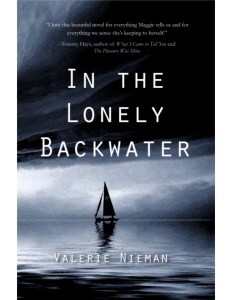
Becoming a queen : a novel / Dan Clay. Is about a teen who deals with heartbreak and depression by becoming a drag queen.
I kick and I fly / Ruchira Gupta Is an excellent story about sex trafficking with a gay character.
Bianca Torre is afraid of everything / Justine Pucella Winans has a protagonist who is questioning her sexual identity.
The immeasurable depth of you / Maria Ingrande Mora has as its main character a lesbian struggling with social anxiety.
I will find you again / Sarah Lyu is about two teen lesbians involved in a disappearance and the ensuing mystery of what happened.
Forget me not / Alyson Derrick is about two teen girls in love who are planning to leave their small conservative town when one suffers a head injury and can remember nothing of her past, including her girlfriend.
This is the tip of the iceberg, but know this, teens regardless of book banning efforts are reading about gender diversity every day and many books where the main characters are straight feature other players who aren’t and this is handled as though it’s the norm. (funny how that is)
Here are some online lists of more YA books that are similar.
https://www.epicreads.com/blog/lgbtq-ya-books-pride/
https://www.familyequality.org/family-support/lgbtq-books/young-adult/
July 11, 2023
No When To Hold ‘Em
This is a post about knowing when to hold ‘em, not when to fold ‘em. About the glass being half full, not half empty. Mostly it’s about a writer’s perseverance and not giving up on a manuscript you believe in.
I just turned in the final, fully edited manuscript yesterday that had been six years in the making. When I first wrote it, I thought I had a masterpiece on my hands. I patted myself on the back for a job well done and sent it to my agent and editor at the time. Boy, was I shocked when both hated the subplot of a cultist group holding the main character hostage.
I wondered how anyone could hate such a delicious idea. But they did and there was no changing their minds. It took me another reading before I realized that they were right, and that the subplot didn’t work in this context. It was a bit silly and over-the-top. So what to do with it?
It went into the trash.

I still loved the main story and felt the bones of this novel were good. It would have been easy to stick it in a shelf and leave it there, and move onto other story ideas. But I couldn’t let this book go. It stuck in my craw. The characters whispered for me to get back to them.
After taking some time off from the novel, I rewrote it. And rewrote it. And rewrote it again. Things still didn’t seem copacetic about the new subplot I’d come up with. So I worked on it some more. Let it sit. Did another complete edit months later. Now what?
After years passed, and believing it to the best novel it could be (which is how I felt at the time about the first version), I sent it to my agent. To my surprise, he loved the new subplot. It worked beautifully in the main story. My agent loving if meant partial validation. Now we had to find a publisher who loved it as much as we did.
To our surprise, the first publisher shared our love for the book and snatched it up before anyone else did. Two weeks ago I received my edits back and realized I had some minor issues with this subplot, but nothing I could not easily fix. So I put everything else aside and did another rewrite, although this one was not anywhere near as drastic as the last. My editors suggestions were fantastic and exactly what this manuscript needed to make it fully viable. After an arduous two weeks, I turned it in yesterday, and look forward to finally seeing this book get published. Hopefully, the cover art will come out soon, and it publishes in late October.
There are many manuscripts I wrote where I knew when to fold ‘em. This one, however, was the one I just had to hold. And I’m glad I did. I’m glad I persevered and kept at it, always believing that this story was good enough to get published. Being stubborn, and never giving up, is often what separates the published author from the unpublished. I was like a pit bull with this manuscript, never letting go of it.
I’ll have more details about the novel at a later date. Suffice to say, don’t ever give up on an idea you fully believe in. Who knows, someday it might even get published.
Happy writing and reading, folks!
July 10, 2023
Not sure why but author MICHAEL AVALLONE caught my eye…
posted by Jule Selbo

Michael Avallone was active in Mystery Writers of America. He left this earth in 1999. Who knew him?
For lovers of 1950s – 80s “pulp” mysteries, Michael Avallone might be a familiar name. I, however, first came across his name when I was researching Maine spy/thriller writer Gayle Lynds’ work for a Crime Wave panel – and Gayle’s history writing for the Nick Carter series surfaced. Avallone was a “regular” “co-writer” for the Killmaster books that used the long-running house name (Nick Carter). For some reason I clicked on his name – and found he was a guy who boasted of authoring 1,000 books. He said “(I’d) rather write than sleep or eat” and believed “…a professional writer should be able to write anything from the Bible to a garden seed catalog and everything there is that lies in between. . . ” More philosophically, he wrote: “…writing is the last frontier of individualism in the world – the one art a man can do alone that basically resists collaboration.” (Take that, A.I.!)

The deeper dive in Avallone began.
I found out that in actuality Avallone, writing under 17 pseudonyms (male and female), and in multiple genres, has a book count closer to 223. (But, giving him a break, he may have included his novellas, articles and short stories in that 1000 work total.) 223 or 1000? Choose one of the other, the output is amazing.
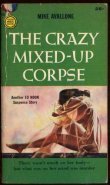
Avallone was born in 1924 in New York, he had 17 siblings, his dad was a stonemason, his formative years were spent during the Great Depression. He often talked about spending as much time as he could at the movies and reading pulp fiction as well as reading and re-reading Dumas’ D’Artagnan/Musketeers series. (Dumas wrote in lots of different genres too, I was reminded of that when I was making sure I spelled “D’Artagnan” correctly.) While in the Army (1943 – 1946), Avallone wrote a diary, penned love letters for his buddies, authored an Army News column. Post war, in 1953, he published his first novel, The Tall Dolores, starring private investigator Ed Noon.

“I’ve been writing since I discovered pencils,” Avallone explained. Genres he dabbled in: horror (his Satan Sleuth series I have to check out – it included The Werewolf Walks Tonight, and Devil Devil), westerns, gothic romances, soft-core porn, sci-fi.
 He also wrote essays, short stories, liner notes for albums, poetry, movie reviews, mysteries for children and novelizations of television series like The Man From U.N.C.L.E., The Partridge Family, The New Adventures of Charlie Chan and of movies like Beneath the Planet of the Apes, Shock Corridor and Cannonball Run.
He also wrote essays, short stories, liner notes for albums, poetry, movie reviews, mysteries for children and novelizations of television series like The Man From U.N.C.L.E., The Partridge Family, The New Adventures of Charlie Chan and of movies like Beneath the Planet of the Apes, Shock Corridor and Cannonball Run.

Under the pseudonym Troy Conway he wrote The Coxeman, spy/mysteries that parodied the Man from U.N.C.L.E tv show, using “tongue-in-cheek porn”. Titles included: The Blow-Your-Mind Job, The Cunning Linguist and A Stiff Proposition. What were most publishers at the time paying for these novelizations? About $1,000 a book.



(Avallone also did a ‘higher-brow’ novelization: A Woman Called Golda.”, based on an 8 part mini-series on Golda Meir.)
But predominantly, Avallone stayed with his favorite protagonist, Ed Noon, in the crime/mystery genre. He even wrote radio serials based on his Ed Noon character – a series called The Wind Up.
Did the man ever sleep?
David Avallone, a filmmaker and one of the author’s two sons wrote in his blog: My father got up every morning around seven a.m. He would walk to the local coffee shop and have a cup or two with the hoi polloi. He would return home before 9:30 a.m. and sit at “the machine.” The late industrial revolution sound effect of a manual typewriter would then start up. It would go, with very few pauses longer than a minute, until someone brought him a sandwich, or reminded him to eat. When I would come home from school, he would finish whatever sentence he was in the middle of, and we’d play catch for an hour. Then back at the machine. Until dinner. If he was enjoying himself a lot, or had a deadline, he would go back to the machine and write until nine, ten at night. He did this five or six days a week for something like fifty years. The result was not always literature, but sometimes it was.
If he didn’t have a book or a story to write, he’d knock out essays or spend the day writing letters. Hundreds of thousands of letters.

(Avallone had a reputation for being a tireless self -promoter and letter writer and being his own greatest fan.)
Avallone said he became a writer out of love of the English language – the ability to make people conjure images by mentioning single words and further holding their attention by stringing the words together into a sentence. He said he wrote for the pleasure, rather than the gain of fame or money. Asked if he ever considered writing to be a painful exercise, he said: “Writing is my religion.” He once completed a novel in a day and a half. Another time, he wrote a 1,500-word short story in 20 minutes while dining in a New York restaurant. In his all-time-record year, he churned out 27 books.
Avallone also liked to talk about writing, he lectured in high school and college writing classes – at places such as Columbia to Rutgers. His encouragement: “The best advice any writer can give to another writer or someone who wants to write, which cannot be taught, is to write, write, write.”

Certainly, he took his own advice. And, perhaps, in writing writing writing, he got a reputation for more than a few off/weird/not-thought-through turns of phrase. The Independent noted that Avallone caused “grievous bodily harm” to the English language; the magazine highlighted a few examples of “sketchy prose styling and mangled or downright weird metaphors”. From Avallone’s Assassins Don’t Die in Bed (1968): “His thin mustache was neatly placed between a peaked nose and two eyes like black marbles.” From The Horrible Man (1968): “She … unearthed one of her fantastic breasts from the folds of her sheath skirt.” The New York Times cited this gem: “The footsteps didn’t walk right in. They stopped outside the door and knocked…” as well as “The whites of his eyes came up in their sockets like moons over an oasis lined with palm trees.” (Not sure if the editors were top-notch.)
 But he also got a few kudos (and a 1989 Anthony Award for his last Ed Noon novel, High Noon at Midnight.) Author Bill Pronzini, who reviewed a few of Avallone’s books, wrote “Ed Noon is the least sexually arrogant private eye in the mystery history. When the heroine tells him she finds him attractive, he is almost pathetically grateful. He goes on to share with the reader his almost unbearable loneliness… This human quality is extremely refreshing. It is part of the way Avallone’s characters talk about fundamental human needs.”
But he also got a few kudos (and a 1989 Anthony Award for his last Ed Noon novel, High Noon at Midnight.) Author Bill Pronzini, who reviewed a few of Avallone’s books, wrote “Ed Noon is the least sexually arrogant private eye in the mystery history. When the heroine tells him she finds him attractive, he is almost pathetically grateful. He goes on to share with the reader his almost unbearable loneliness… This human quality is extremely refreshing. It is part of the way Avallone’s characters talk about fundamental human needs.”
I’m sure there are people reading this blog who know Bill Pronzini, another author with a very large number of titles, (40+ Nameless Detective books, 300+ short stories, lots of crime/mystery awards, also the Carpenter and Quincannon Series written with Marcia Muller (his wife)). Who’s met him?
Pronzini also wrote this of Avallone’s work: “On the one hand, Noon is a standard tough, wisecracking op with a taste for copious bloodletting and a Spillane-type hatred of Communists, dissidents, hippies, pacifists, militant blacks, liberated women, and anyone or anything else of a liberal cant. On the other hand, he is a distinctly if eccentrically drawn character who loves baseball, old movies, and dumb jokes, and who gets himself mixed up with some of the most improbable individuals ever committed to paper.”
Despite Pronzini’s observations about Avallone’s ability to relay fundamental human needs, it’s clear (to me) Avallone often embraced a heightened, imaginative reality in choosing his characters and plots. The client Dolores, in The Tall Dolores, is the tallest burlesque queen in the world, the “shapeliest Amazon”, a regular Empire State Building of female feminine dame. Dolores hires Noon to find her missing lover, who is even taller than she is. He’s disappeared under mysterious circumstances and then he is found, dead, on the Museum of Natural History’s steps.
 In The Case of the Bouncing Betty (1956) a 440-pound female mattress tester becomes Noon’s client. Private Investigator Noon was originally a rather straightforward variation on the classic pulp private eye. But as the series developed, it became increasingly original and eccentric, with unique characters and plot devices.
In The Case of the Bouncing Betty (1956) a 440-pound female mattress tester becomes Noon’s client. Private Investigator Noon was originally a rather straightforward variation on the classic pulp private eye. But as the series developed, it became increasingly original and eccentric, with unique characters and plot devices.

Noon even became an unlikely sometime-operative for the President of the United States and was sent off on top secret assignments (in The Hot Body (1973) Noon has to stop an ex-First Lady (a Jackie Kennedy-type) from defecting to Castro’s Cuba.
Supporters refer to Avallone as “a fertile pro who delivered a good read and never condescended to any assignment no matter how unpromising—in fact, Avallone’s vibrant self-regard tended to elevate all of his work, and in conversation he could discuss his artistic intentions in one of his Partridge Family novels with the detail and fervor of a Shakespeare scholar annotating Hamlet.”

Some point to Avallone’s sometimes hilarious prose style – and the “Noonisms” (similes, metaphors, and descriptive passages): “Her hips were beautifully arched and her breasts were like proud flags waving triumphantly. She carried them high and mighty.” And: “I flung a quick glance through the soot-stained windows. A mountain range and a dark night sky peppered with salty-looking stars winked at me.”
Since I’ve always enjoyed reading overly “pulpy” turns of phrase in 1940s, 50s 60s mysteries (but never try to emulate Spillane, Chandler, Woolrich, Frederik Brown etc.), I was interested to see how Avallone might have introduced the “beautiful African American Melissa Mercer” that Ed Noon hired as his secretary once he had gained some success and his bank account was flush.

She is introduced in Bedroom Bolero (1963); this was the 13th book in the Ed Noon series. I was surprised that he held back in this section, and chose to deal with a “social issue” (in a way)…
She was a slight, miniature doll of a girl, with large eyes and a mouth that didn’t need paint. Her clothes were plain but tasteful, fully advertising she knew what to do with her hard-earned money. But there was a flash of disbelief in her eyes when I told her the job was hers.
“Why are you giving me the job? Think I’ll be easy?”
“I don’t pinch, flirt or rub noses in the office.”
“Sorry, it’s just that I’ve been had by white men. I’ve worn myself out trying to convince them being a colored girl is not a cliché.”
“I’m enlightened, Miss Mercer.”
I’ve done some research on Avallone now, I’m ready to read a few of his Ed Noon books. Another Avallone book I’m ready to check out: 5 MINUTE MYSTERES.
 It contains a group of small stories, written to be brain-teasers. Each is supposed to have an “aha” that the reader needs to pick up on to solve the mystery. GoodReads reviewers find most of the stories successful.
It contains a group of small stories, written to be brain-teasers. Each is supposed to have an “aha” that the reader needs to pick up on to solve the mystery. GoodReads reviewers find most of the stories successful.
Avallone was inducted into the New Jersey Hall of Fame (Arts and Letters category) and was awarded a Literary Luminary of New Jersey in 1977. He was editor of the MWA newsletter for three years (1962-65) and also served on its board.
On February 26, 1999, the acclaimed “pulpmeister” suffered a heart attack. He’s probably on a typewriter – somewhere – typing away – if you believe there is a somewhere out there.
July 7, 2023
Weekend Update: July 8-9, 2023
 Next week at Maine Crime Writers there will be posts by Jule Selbo (Monday), Joe Souza (Tuesday) John Clark (Thursday), and Maggie Robinson (Friday).
Next week at Maine Crime Writers there will be posts by Jule Selbo (Monday), Joe Souza (Tuesday) John Clark (Thursday), and Maggie Robinson (Friday).
In the news department, here’s what’s happening with some of us who blog regularly at Maine Crime Writers:
An invitation to readers of this blog: Do you have news relating to Maine, Crime, or Writing? We’d love to hear from you. Just comment below to share.
And a reminder: If your library, school, or organization is looking for a speaker, we are often available to talk about the writing process, research, where we get our ideas, and other mysteries of the business, along with the very popular “Making a Mystery” with audience participation, and “Casting Call: How We Staff Our Mysteries.” We also do programs on Zoom. Contact Kate Flora
July 6, 2023
First Words
A good mystery sings from the get-go.
“It was one hell of a night to throw away a baby.”

Those dozen words opened Julia Spencer-Fleming’s 2002 debut novel, In the Bleak Midwinter. I’ve never forgotten them. Julia made good on the promise of that line, spinning out a powerful tale about an abandoned baby, a dead young mother, and a small community where despite the fact everybody knows most everybody else, some manage to keep their secrets. In The Bleak Midwinter won a pile of important awards and launched Julia’s successful series that now numbers nine books with the tenth on the way.
Chris Holm knit together four perfect sentences to kick off his award-winning 2015 novel The Killing Kind:
“The streets of downtown Miami shimmered in the evening heat, the summer air rich with spice and song. Neon and rum and the warm ocean breeze conspired to make the city thrum with lurid anticipation. It was, after all, a Friday night in one of the most vibrant cities in the world. Still, no one who walked that night beneath the broad modern portico of the Morales Incorporated Building suspected they’d briefly occupied the spot where a man was about to die.”
I can feel the sticky Florida air. My nose reacts to the capsaicin from the frying peppers. The early evening energy has me jumpy with anticipation. And because Chris is a master at this, now I want to know what will disrupt this setting, so I sit down and lose myself in the story of a hit man with a specialty – he only kills other hitmen.
My friend Robyn Gigl’s newest book Remain Silent, starts with this bang:
“Erin eyes the camera in the corner of the ceiling. After almost twelve years as a criminal defense lawyer, she had been in enough interrogation rooms to know that it probably wasn’t the only one focused on her.”
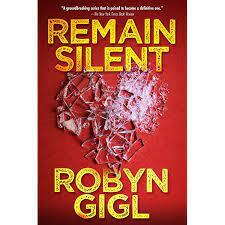 In Remain Silent, Erin, an openly transgender attorney, is targeted by ruthless political players who fear she knows things about them they don’t want known. Though I don’t do criminal defense work, that scenario Robyn uses to kick off this powerful third book in her Erin McCabe series—a lawyer winding up on the wrong side of the table—chills me as it would anyone who cares about perversion of the rule of law by those who claim to revere it.
In Remain Silent, Erin, an openly transgender attorney, is targeted by ruthless political players who fear she knows things about them they don’t want known. Though I don’t do criminal defense work, that scenario Robyn uses to kick off this powerful third book in her Erin McCabe series—a lawyer winding up on the wrong side of the table—chills me as it would anyone who cares about perversion of the rule of law by those who claim to revere it.
British author Ann Cleeves uses precise, telling details to raise the tension from a simmer to a boil in Raven Black, the first book in her Shetland Island series, featuring Inspector Jimmy Perez: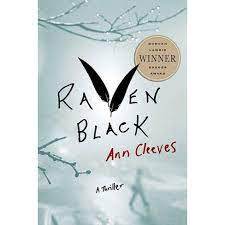
“Twenty past one in the morning on New Year’s Day, Magnus knew the time because of the fat clock, his mother’s clock, which squatted on the shelf over the fire. In the corner the raven in the wicker cage muttered and croaked in its sleep. Magnus waited. The room was prepared for visitors, the fire banked with peat and on the table a bottle of whisky and the ginger cake he’d bought in Safeway’s the last time he was in Lerwick. He could feel himself dozing, but he didn’t want to go to bed in case someone should call at the house. If there was a light at the window someone might come, full of laughter and drams and stories. For eight years nobody had visited to wish him happy new year, but still he waited just in case.”
I don’t need to tell you that visitors do appear. Lonely Magnus winds up a suspect when one of them is later found dead and some in the rural community hear the echo of a similar killing years ago. I knew when I finished that first paragraph the story would be compelling on many levels, and that is an understatement.
Attica Locke is another writer who uses detail to draw the reader into a world where quiet menace bubbles beneath a placid surface. Bluebird, Bluebird, her 2017 novel set in an East Texas town where racial tension informs every single thing, does not start with a bang. Her writing is so smooth, so seductive, it doesn’t have to:
“Geneva Sweet ran an orange extension cord past Mayva Greenwood, Beloved Wife and Mother, May She Rest with Her Heavenly Father. Late morning sunlight pinpricked through the trees, dotting a constellation of light on the blanket of pine needles at Geneva’s feet as she snaked the cord between Mayva’s sister and her husband Leland, Father and Brother in Christ. She gave the cord a good tug, making her way up the modest hill, careful not to step on the graves themselves, only the well-worn grooves between the headstones, which were spaced at haphazard and odd angles, like the teeth of a pauper.”
Doesn’t that make you just keep on reading?
What crime novels feature your favorite opening lines/passages? Hold forth in the comments, friends, and if you want to toss in any recommendations for vacation reading, have at it!
Brenda Buchanan brings years of experience as a journalist and a lawyer to her crime fiction. She has published three books featuring Joe Gale, a newspaper reporter who covers the crime and courts beat. She’s now hard at work on a new novel and several short stories. FMI, go to http://brendabuchananwrites.com
Never Start a Book with the Weather
The Maine Crime Writers blog was born in the summer of 2011, when Kate Flora decided it would be fun to get a group of Maine writers together to talk about what we do and why we choose to live in Maine. Today, I’m reposting (with a few tweaks here and there) a post we did back in that first year. The bloggers here have since moved on, but it was fun to share the blog with Barbara Ross, Paul Doiron, Jim Hayman, Gerry Boyle, and Sarah Graves. The title here comes from Elmore Leonard’s essay: Easy on the Hooptedoodle, discussed below.
Kate: Many years ago, when my first book came out, I was at Malice Domestic, one of the big national 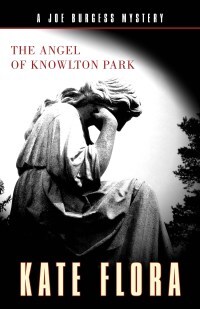 writers’ conferences, and I was assigned to a panel about weather. It sounded like a dull topic, just the kind of thing that an unknown newbie would be assigned to, but as I considered what I might say about weather that would be interesting to a reader or another writer, I realized that weather–how it affects our character’s moods, how they prepare for it, and how it affects the events and action in our books–is actually a pretty important aspect of our writing. Maine has weather of all sorts, infinitely changeable weather that gives rise to the old expression: If you don’t like the weather, wait a minute. In particular, it has fog, wonderful dense, pea-soupy fog that slows driving to a crawl, distorts sounds, and blunts the senses. Fog that can come and go. Fog that cranks up the danger factor and jacks up the tension when a character needs to be somewhere and speed is out of the question.
writers’ conferences, and I was assigned to a panel about weather. It sounded like a dull topic, just the kind of thing that an unknown newbie would be assigned to, but as I considered what I might say about weather that would be interesting to a reader or another writer, I realized that weather–how it affects our character’s moods, how they prepare for it, and how it affects the events and action in our books–is actually a pretty important aspect of our writing. Maine has weather of all sorts, infinitely changeable weather that gives rise to the old expression: If you don’t like the weather, wait a minute. In particular, it has fog, wonderful dense, pea-soupy fog that slows driving to a crawl, distorts sounds, and blunts the senses. Fog that can come and go. Fog that cranks up the danger factor and jacks up the tension when a character needs to be somewhere and speed is out of the question.
In one scene in the second Joe Burgess book, The Angel of Knowlton Park, it’s a blazing hot morning in Portland, and Detective Stan Perry, who dressed in the dark to rush to the crime scene, is wearing a navy windbreaker over his t-shirt. When Burgess suggests he take the jacket off before he gets heat stroke, he opens it just far enough so Burgess can read his t-shirt. It says: Homicide: Our Day Begins When Your Day Ends.
How have the rest of you used weather in your books?
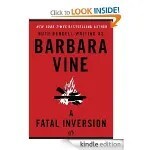 Barb: If they gave an award for “best use of weather,” in a book, I would give it to Ruth Rendell writing as Barbara Vine in A Fatal Inversion. It takes place in (or actually flashes back to) the drought-plagued summer of 1976, still the hottest on record in Britain. In this book, which did win a Gold Dagger Award, the weather is for all intents and purposes a character.
Barb: If they gave an award for “best use of weather,” in a book, I would give it to Ruth Rendell writing as Barbara Vine in A Fatal Inversion. It takes place in (or actually flashes back to) the drought-plagued summer of 1976, still the hottest on record in Britain. In this book, which did win a Gold Dagger Award, the weather is for all intents and purposes a character.
 My book, The Death of an Ambitious Woman, opens on the first warm day of spring. The weather reflects my protagonist Acting Police Chief Ruth Murphy’s mood; she’s just received some very good news. But typical of spring in New England, there’s plenty of rough weather ahead.
My book, The Death of an Ambitious Woman, opens on the first warm day of spring. The weather reflects my protagonist Acting Police Chief Ruth Murphy’s mood; she’s just received some very good news. But typical of spring in New England, there’s plenty of rough weather ahead.
On more thing about weather. For many writers, when we have to write a difficult scene, in the first draft, there’s often a little warm-up before we get into it. For one of the people in my writers group, this was always a description of the weather. The more difficult the scene was to write, the longer the description would go on. (For another person, characters would always sit down for a cup of tea before a difficult conversation. For me, it’s always a completely unnecessary description of the surrounding architecture.) So in the writers group, when a manuscript is beating around the bush, “No more weather!” has become our universal critique for quit stalling and get down to it.
Kate: Barb…I understand that “no more weather.” When I was an editor at Level Best Books, we got a story once that began with a page of boiling weather. We all thought, “New MFA.” But we read on, and it was a great story, so we got to be that author’s first publisher. When I edit manuscripts, I often go back to the author with the comment–don’t just describe the weather, use it. Use it to deepen character, to make your scene more vivid, to underscore emotion, to create tension or throw an obstacle in someone’s path. Use the weather for contrast–bright sun with dark mood, for example, or the ‘no amount of rain’ could damped her spirits. Often, the challenge is in the balance, in the difference between stopping the action to describe weather, stepping out of scene and risking losing your reader, and making the weather an organic part of the action
Paul: “It was a dark and stormy night.” Bulwer-Lytton’s first sentence to Paul Clifford  ranks with “Call me Ishmael” as the most famous opening to a novel in literature. It has also become a shorthand for “bad writing,” and there is now a Bulwer-Lytton prize for the lousiest lead sentence of the year. (That’s one award you don’t want to win.) I’d say that bad writing is just bad writing, whether it’s about the weather or a character’s morning ablutions or whatever. Lots of novelists have a problem procrastinating their way into their stories. It happens to all of us, I’d wager, in early drafts before we exert the discipline to go back and cut so that we’re beginning with the action that truly leads into the story we mean to tell.
ranks with “Call me Ishmael” as the most famous opening to a novel in literature. It has also become a shorthand for “bad writing,” and there is now a Bulwer-Lytton prize for the lousiest lead sentence of the year. (That’s one award you don’t want to win.) I’d say that bad writing is just bad writing, whether it’s about the weather or a character’s morning ablutions or whatever. Lots of novelists have a problem procrastinating their way into their stories. It happens to all of us, I’d wager, in early drafts before we exert the discipline to go back and cut so that we’re beginning with the action that truly leads into the story we mean to tell.
For me this topic is highly personal since my books are essentially about weather. Game wardens work outside, all the time. They’re like law enforcement postal workers that way (neither rain nor sleet nor driving snow shall keep them from their appointed rounds). In the middle of Trespasser there is a horrible ice storm, and while I didn’t begin the book with that section in mind, the novel is now inconceivable to me without that passage. The rest of the story couldn’t take place without Mike Bowditch engaging in an ill-considered ATV chase in those miserable conditions.
 I mildly disagree with Kate in one regard: Sometimes a quick description of weather can be fine all by itself if the writer is a prose stylist like Raymond Chandler: “It was about eleven o’clock in the morning, mid October, with the sun not shining and a look of hard wet rain in the clearness of the foothills.” Now this sentence has nothing to do with the rest of the Big Sleep, but man, is that pure poetry. I suppose you could say that Chandler used the weather to establish Marlowe’s unique voice.
I mildly disagree with Kate in one regard: Sometimes a quick description of weather can be fine all by itself if the writer is a prose stylist like Raymond Chandler: “It was about eleven o’clock in the morning, mid October, with the sun not shining and a look of hard wet rain in the clearness of the foothills.” Now this sentence has nothing to do with the rest of the Big Sleep, but man, is that pure poetry. I suppose you could say that Chandler used the weather to establish Marlowe’s unique voice.
And then there’s the beginning of his famous story “Red Wind,” which I will just quote and let stand on its own for its jaw-dropping power: “There was a desert wind blowing that night. It was one of those hot dry Santa Anas that come down through the mountain passes and curl your hair and make your nerves jump and your skin itch. On nights like that every booze party ends in a fight. Meek little wives feel the edge of the carving knife and study their husbands’ necks. Anything can happen.”
Kate: Elmore Leonard, in his essay: “Easy on the Hooptedoodle: Ten Rules for Writers” tells us never to begin a book with the weather, but then goes on to qualify that by saying that if you can write like Barry Lopez, you can put in all the weather you want. Weather described just to describe weather is different from weather that is used to build a sense of place or deepen character. Paul, as you’ve noted, that quote from Red Wind doesn’t just talk about weather. It describes the effect of weather on people, and it gives us a sense of place and of the narrator/character’s world view and voice…and that is storytelling.
Jim: One of things I like best about Maine as a setting for my books is the state’s extreme 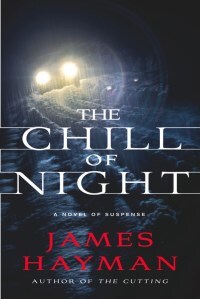 weather. In fact, the plot of the second McCabe thriller, The Chill of Night, in completely dependent on really bad weather. The story couldn’t have been told without mountains of snow and sub-zero temperatures. The body of the first victim, attorney Lainie Goff, is found frozen solid in the trunk of her BMW. An autopsy can’t be performed until she thaws. The villain can’t dispose of his second victim because the ground is too frozen to dig a grave, so he just buries him under a mound of snow. The key witness, Abby Quinn, gets lost in a blizzard and almost freezes to death. And the hero, McCabe nearly loses his toes to frostbite.
weather. In fact, the plot of the second McCabe thriller, The Chill of Night, in completely dependent on really bad weather. The story couldn’t have been told without mountains of snow and sub-zero temperatures. The body of the first victim, attorney Lainie Goff, is found frozen solid in the trunk of her BMW. An autopsy can’t be performed until she thaws. The villain can’t dispose of his second victim because the ground is too frozen to dig a grave, so he just buries him under a mound of snow. The key witness, Abby Quinn, gets lost in a blizzard and almost freezes to death. And the hero, McCabe nearly loses his toes to frostbite.
Kate: And fog, Jim. A very important factor, especially since you can be in pea soup fog one minute and totally in the clear the next. After my two days riding with a warden, I have a wonderful new fog story and an easy dozen about hypothermia and its effect on the ability to reason. Every season in Maine has it’s weather, and weather-related issues. Mud season? How the fall leaves come down and mask that newly dug grave. I woke this morning thinking about weather in King Lear, and how it is a backdrop to the whole play. It wouldn’t be the same story without storms on the heath and the way it underscores the character’s emotions.
Gerry: What a fun discussion. Just a quick addition:
Like the Maine landscape, Maine weather is a full-fledged character. An event at noon on a lovely July day is very different from a driving rainstorm at midnight. Our technology has estranged us from weather in many ways but it still is a force in our lives. I love it when we go someplace where there is no electricity (a coastal island, for example) and walk the trails home to our cottage. In the dark. In the fog. Eyes peering into the mist. Ears listening for danger. Those senses need to be revived in our readers.
lovely July day is very different from a driving rainstorm at midnight. Our technology has estranged us from weather in many ways but it still is a force in our lives. I love it when we go someplace where there is no electricity (a coastal island, for example) and walk the trails home to our cottage. In the dark. In the fog. Eyes peering into the mist. Ears listening for danger. Those senses need to be revived in our readers.
I have a notebook called weather. I describe different days and nights and when you do this, you find that no two weather events are exactly the same.
Kate: Gerry…a notebook called weather is a wonderful idea. I used to have a small notebook full of things like car crashes and the many words for pain, but one for weather is something I think I’ll add. Not only useful for the books but useful to tune up one’s senses and the importance of close observation. Sometimes this challenge sends me scurrying for my beloved Rodale’s Synonym Finder to get a better descriptive word.
Something that often strikes me, when I’m interviewing cops and wardens, is when they talk about how the sounds of walking in snow are different depending on the temperature. Very useful for Paul’s warden, but important for all of our characters as well.
 Sarah: Maine weather affects me twice: once on the page, as whatever the weather is exerts its effect on my characters, and once in my work room, where if it’s howling cold out I tend to stay and write another few pages, but if it’s fine outside, chances are I’ll be there soon, too. An example of the former came up in my upcoming one, Dead Level, when the bad guy couldn’t bury his murdered wife so he put her out on the woodpile, where she froze and the snow covered her. But an early thaw that revealed part of her blue dress, and the arrival of some religious pamphleteers at the same time put, as he called it later, a “hitch in his git-along.”
Sarah: Maine weather affects me twice: once on the page, as whatever the weather is exerts its effect on my characters, and once in my work room, where if it’s howling cold out I tend to stay and write another few pages, but if it’s fine outside, chances are I’ll be there soon, too. An example of the former came up in my upcoming one, Dead Level, when the bad guy couldn’t bury his murdered wife so he put her out on the woodpile, where she froze and the snow covered her. But an early thaw that revealed part of her blue dress, and the arrival of some religious pamphleteers at the same time put, as he called it later, a “hitch in his git-along.”
July 2, 2023
Nonfiction Bonanza in July
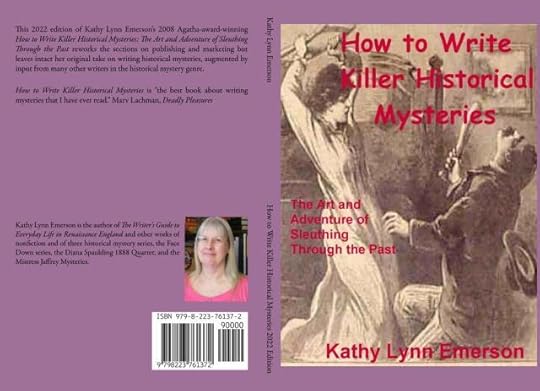 Kaitlyn Dunnett/Kathy Lynn Emerson here, today writing as Kathy. It was just last month that I posted about trying to decide whether to create print-on-demand editions of two of my older nonfiction books, The Writer’s Guide to Everyday Life in Renaissance England 1485-1649 and How to Write Killer Historical Mysteries. Both have been available as e-books right along, but most folks who responded to that blog and to the same question on Facebook indicated that they really liked having a print copy to flip back and forth between sections, make notes in, and mark pages with Post-its.
Kaitlyn Dunnett/Kathy Lynn Emerson here, today writing as Kathy. It was just last month that I posted about trying to decide whether to create print-on-demand editions of two of my older nonfiction books, The Writer’s Guide to Everyday Life in Renaissance England 1485-1649 and How to Write Killer Historical Mysteries. Both have been available as e-books right along, but most folks who responded to that blog and to the same question on Facebook indicated that they really liked having a print copy to flip back and forth between sections, make notes in, and mark pages with Post-its.
You can read what I said here but the gist of it was that creating a POD nonfiction book, especially when the e-book already exists, isn’t all that hard except for two things. One is the fact that it needs an accurate index. Old page numbers from the original print version won’t match. The other is that nonfiction is arranged a bit differently than fiction—lots more boldfaced headings and subheads and the occasional graph or map. In the e-book editions, no index is necessary because the text is searchable. I’m not sure how maps and graphs came out in various formats (Kindle, Nook, and so on). To tell you the truth, I’m afraid to look at my current e-book editions because what soon became very obvious when I started putting together the print editions was that there were a lot of what I have to call “squirrely bits.” Some subheads came out larger than the headings and in a different font. Some indentations were . . . peculiar. Graphs? Forget it. Those didn’t translate at all. Spacing between sections was off, too.
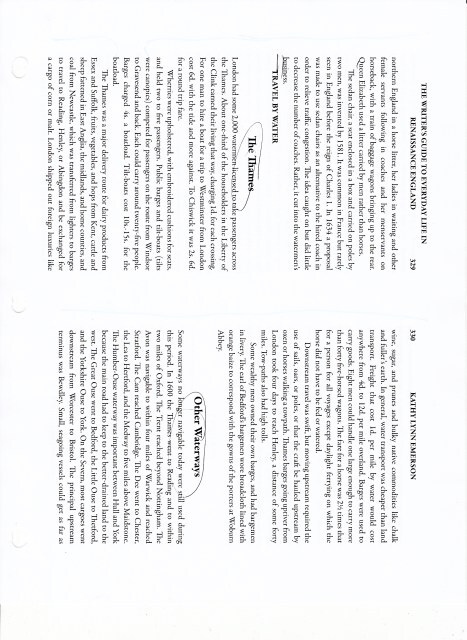
This is how a couple of pages looked before fixing them
But I’m stubborn. Once I decided to launch this project, I was determined to figure out how to make it work. Obviously I wasn’t going to retype two entire manuscripts, but after some thought, I found workarounds. On the graphs, I simply translated the information into paragraphs of text.
I’m not a tech person. I assume there are commands in the doc file that I can’t see but I have no idea how to eliminate them. Instead, I used the “save as” function to save each manuscript in txt format. That takes out all the commands, including italics and differing font sizes. I could have then saved the entire txt file as a new doc file (yes, I still use doc rather than docx) and gone through the entire thing setting up the spacing and font sizes the way I wanted and trying to catch all those words (book titles, for example) that needed to be in italics. The original doc file wasn’t entirely squirrely, however, so instead, I cut and pasted from txt to doc only in the really screwed up places and then adjusted those to match the rest of the manuscript.
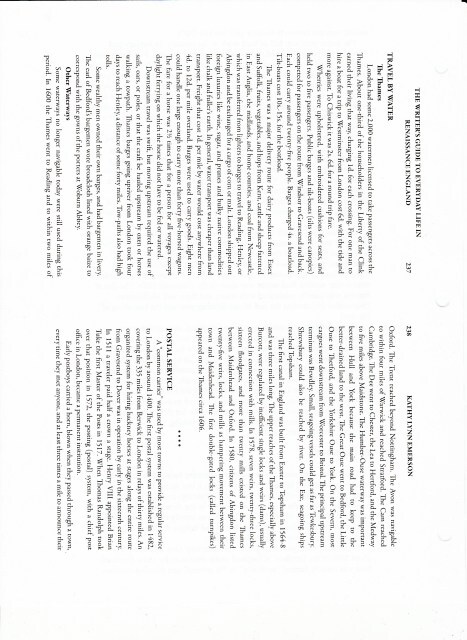
Same material after tweaking
I know. I’m sure there’s an easier way, but this wasn’t all that hard to do and, more importantly, it worked. All it required, since I use Draft2Digital to publish my print-on-demand titles, was to send the file, multiple times, to a template that creates the paginated interior of the book. Each time, I’d download the pdf of the interior and check to see what still needed fixing.
I’m retired. I have time to play with this stuff.
Once the interior was set up the way I wanted it, all that was left was creating the index. Using a pdf of the final version, the old print edition index (slightly improved) for topics, and the search function, I was able to fill in all the page numbers. This took under an hour for Everyday Life. After that it was just a matter of adding the index to the end of the final doc file and uploading one last replacement version to Draft2Digital.

I have no doubt that a typo or two still remains. And maybe an extra space here or there. I know a few of the indents are still off because the template is set up for fiction and insists on starting the first paragraph of anything it perceives as a chapter at the margin instead of indenting it. That strikes me as a minor problem not worth obsessing about. All in all, both books look pretty good, and if a reader should spot a serious error, I can still go in and fix it. It’s not like there’s going to be a huge print run out in the world with a major error in every copy.
So, that’s where things stand. The print-on-demand trade paperback of How to Write Killer Historical Mysteries was released on June 30. The Writer’s Guide to Everyday Life in Renaissance England is available for pre-order and its release date is July 19. Each is priced at $15.99.
For those who are curious, using Draft2Digital as printer and distributor to all the major booksellers and libraries, I earn $2.86 for each sale of How to Write Killer Historical Mysteries and $2.44 for each sale of The Writer’s Guide to Everyday Life in Renaissance England. The 6% standard for the author’s cut of a traditionally published paperback would have been $.96. Hardcover royalties are 10%, which would be $1.60. I can also purchase author copies to sell direct to readers. The cost for How to Write Killer Historical Mysteries is $4.31 each and each copy of The Writer’s Guide to Everyday Life in Renaissance England costs me $4.76. Yes, I make a bigger profit if I sell them myself, but the return on sales through D2D is nothing to sneeze at. Will I sell thousands of copies? No. Hundreds? Unlikely. But the books will be available, and all it cost to get them out there was a little of my time and my husband’s help creating covers (with artwork I already had) using the free tools found at Canva.com.
Now back to reissuing my backlist fiction, a much simpler process!

Kathy Lynn Emerson/Kaitlyn Dunnett has had sixty-four books traditionally published and has self published others, including several children’s books. She won the Agatha Award and was an Anthony and Macavity finalist for best mystery nonfiction of 2008 for How to Write Killer Historical Mysteries and was an Agatha Award finalist in 2015 in the best mystery short story category. In 2023 she won the Lea Wait Award for “excellence and achievement” as a Maine writer from the Maine Writers and Publishers Alliance. She was the Malice Domestic Guest of Honor in 2014. Her most recent publications are The Valentine Veilleux Mysteries (a collection of three short stories and a novella, written as Kaitlyn) and I Kill People for a Living: A Collection of Essays by a Writer of Cozy Mysteries (written as Kathy). She is currently working on creating new omnibus e-book editions of her backlist titles. She maintains websites at www.KaitlynDunnett.com and www.KathyLynnEmerson.com.
June 30, 2023
Weekend Update: July 1-2, 2023
 Next week at Maine Crime Writers there will be posts by Kaitlyn Dunnett/Kathy Lynn Emerson (Monday), Kate Flora (Thursday), and Brenda Buchanan (Friday). Happy Fourth of July everyone!
Next week at Maine Crime Writers there will be posts by Kaitlyn Dunnett/Kathy Lynn Emerson (Monday), Kate Flora (Thursday), and Brenda Buchanan (Friday). Happy Fourth of July everyone!
In the news department, here’s what’s happening with some of us who blog regularly at Maine Crime Writers:
 from Kathy Lynn Emerson: Yesterday was the release date for the print-on-demand trade paperback edition of my Agatha-award-winning nonfiction, How to Write Killer Historical Mysteries (2022 edition). I recommend ordering copies from Barnes & Noble, as they have proven faster and more efficient at filling orders for POD books than Amazon, but any bookstore or library should be able to order a copy.
from Kathy Lynn Emerson: Yesterday was the release date for the print-on-demand trade paperback edition of my Agatha-award-winning nonfiction, How to Write Killer Historical Mysteries (2022 edition). I recommend ordering copies from Barnes & Noble, as they have proven faster and more efficient at filling orders for POD books than Amazon, but any bookstore or library should be able to order a copy.
An invitation to readers of this blog: Do you have news relating to Maine, Crime, or Writing? We’d love to hear from you. Just comment below to share.
And a reminder: If your library, school, or organization is looking for a speaker, we are often available to talk about the writing process, research, where we get our ideas, and other mysteries of the business, along with the very popular “Making a Mystery” with audience participation, and “Casting Call: How We Staff Our Mysteries.” We also do programs on Zoom. Contact Kate Flora
Our Maine Summers
Since part of our group description is “all things Maine,” today we thought we’d share some of the things we’re planning for this summer. What we’ll do and where we’ll go when we’re not chained to our desks.
Kate Flora: For my 55th birthday, my sweet husband bought me a blueberry field in Union. Wild blueberries are only harvested every other year, and I’m excited because this will be a blueberry summer. Although the majority of these organic berries are commercially harvested, there will be a day in late July or early August when family and friends assemble for a blueberry picking morning followed by a picnic of the family farm (courtesy of the new owners) and a swim in Sennebec Pond. I will come home from that and spend the next day or two making blueberry jam!
Union. Wild blueberries are only harvested every other year, and I’m excited because this will be a blueberry summer. Although the majority of these organic berries are commercially harvested, there will be a day in late July or early August when family and friends assemble for a blueberry picking morning followed by a picnic of the family farm (courtesy of the new owners) and a swim in Sennebec Pond. I will come home from that and spend the next day or two making blueberry jam!
As if that weren’t enough, a month later, assuming the crop is okay, I will join my best friend Karin (friends since were were 4 1/2 and 5 1/2) to harvest grapes.
Sounds like a pretty agricultural summer, yes? I also hope to visit the Coastal Maine Botanical Garden a few times, as it is a favorite, and there’s an oyster cruise in Damariscotta I’ve been wanting to take for years. And of course, I want to revisit the Robert McCloskey exhibit at the Curtis Library in Brunswick. It’s amazing!


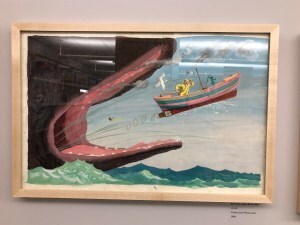
Kaitlyn Dunnett/Kathy Lynn Emerson: I’ve always been a homebody at heart, so I’m happiest just staying put when the weather is nice. Since we live on some 25 rural, mostly forested acres, that isn’t any hardship. We “camp out” with the advantage of sleeping in our own bed and having two fully functional bathrooms.

Above is a look at part of our land a little earlier in a typical year. We even have a water feature, the source of the name Moosetookalook. Moose (and deer, and other critters) come to drink in full view of our windows. There are old logging trails up into the woods, and a stream that marks our property line on one side. I admit, I don’t go out walking much these days, thanks to arthritis in my knees and feet, but I still have relaxing summertime views when I look up from reading on our screened-in front porch. What can I say? There’s no place like home, especially when that home is a house in Maine.
Maggie Robinson: Like Kathy/Kaitlyn, I prefer my own Maine backyard, whatever the season. We live in the Historic District of Farmington, quite close to the thriving downtown, but when you’re behind the fence, you’re a million miles away. The rock pond burbles, the hummingbirds and their bigger buddies dip in and out to drink and clean their feathers, the perennials do their thing. Since we bought the house, I’ve put in a zillion daylilies, foxgloves, and peonies. (Just don’t remind me of the 200 purple tulip bulbs I bought for the front garden, which have been merrily munched by the deer who live down the street in Bonney Woods. Happily, they have not figured out how to open up the gates to the garden.)
We usually have some summer company. This year we’ll be blessed with our six-year-old granddaughter for several days. We can walk to the 4th of July parade, and watch the fireworks from our front porch if we keep her up past her bedtime. Some ice cream and native strawberries will probably be involved. Life is good.

Kait Carson: Do I detect a theme? I’ll echo Maggie and Kathy/Kaitlyn. I live in St. John Valley area of Aroostook County. My backyard provides ample distraction for four season enjoyment. Hiking in the spring/summer/fall and snowshoeing in the winter over the old logging roads fill the days. Research trips are also on the agenda this year. My latest WIP is set in a fictitious town in the Allagash. Been a while since I visited the area. Summer in Maine is delectable, delightful, and lasts just long enough to make you long for the change of season.
Matt Cost: I much enjoy walking the dogs in the woods behind my house, a visit to Popham Beach, maybe Old Orchard Beach, and a festival or two. The fact is, though, that my truest enjoyment in the summer months occurs doing outdoor book events. I just recently had the pleasure of signing and selling books at the Belgrades Lakes Craft Fair with fellow Maine Crime Writers Maureen Milliken, Kate Flora, and John Clark.

We had a fabulous day chatting amongst ourselves and the reading public. I will also be attending the 2nd Friday events in my hometown of Brunswick for the next three months. There will be music, food, crafts, friends, new friends, and of course, books. In July I will be doing a book presentation at the Southport Memorial Library on the beautiful Maine Coast, and in August I will talking about my latest published book, Mainely Wicked, at the Readfield Community Library on the shores of Lake Maranacook, where the climatic scene of the book takes place. Those are my true sweet moments of summer.
John Clark: We spend a week in Perry every summer, usually over the 4th of July and hike a different trail or two each year as well as enjoy parades and book sales. Beth kayaks a lot while I bring a stack of books. We also keep a tally of the license plates we see from other states and Canada.

Closer to home, I like taking Piper (maybe Reid and Gemma this summer) fishing. I also love sunning on the back deck while reading and watching hummingbirds down low and eagles soaring high above. I’ve seen as many as seven at one time.

Brenda Buchanan: Lots of common themes here!
Our backyard is a verdant pleasure, and the deer eat our tulips, too, Maggie.
We also will make a trip to Curtis Memorial Library in Brunswick to see the new exhibit, Robert McCloskey: The Art of Wonder. The Illustration Institute, founded by our dear friends Scott Nash and Nancy Gibson-Nash, is the library’s partner in this collaboration, and every project the institute undertakes is so well done. Also, Sal of blueberry fame is a friend from my days in Hancock County.
Speaking of Hancock County, in about a month we’ll be there at the sweet cottage we rent on Allen Cove in Brooklin. I look forward to mornings writing on The Porch With The Perfect View , and afternoons hiking and swimming. Our time in Brooklin is a highlight of every year, and I cannot wait.
, and afternoons hiking and swimming. Our time in Brooklin is a highlight of every year, and I cannot wait.
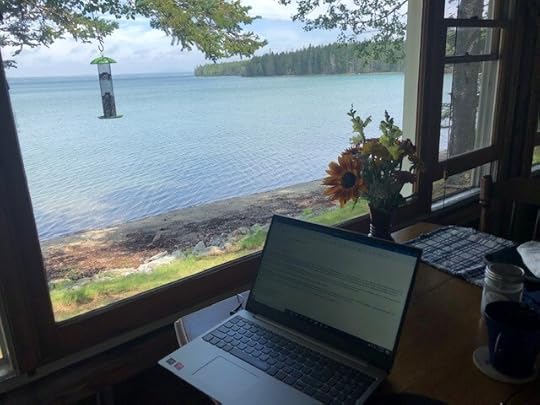
The Porch With The Perfect View. It almost looks fake, doesn’t it?
Wishing everyone a great summer! It’s short, but oh so sweet!
June 26, 2023
Inspiration by Kait Carson
“Between every two pines is a doorway to a new world.” – John Muir (1838-1914)
We’ve had several posts on the glorious nature of Maine this month. As I’m posting near the end, I wanted to talk about how nature gives me inspiration.
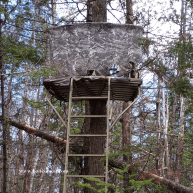
A birds-eye view
Authors are often asked where they get their ideas. The question gives me a silent chuckle and reminds my sixth-grade class when our teacher asked each of us to use a word in a sentence. She gave one boy, a known prankster, the word “clues”. He stood (we were very respectful in those days) and said, “I keep my clues in the clues closet.” The class dissolved in laughter. Would it surprise you to know we are still in touch?
There are days when I wish I had an inspiration closet. Unfortunately, no such animal exists in my arsenal. What I have are the woods. A quarter mile hike through my backyard to the trailhead and I’m in a different world. A world of magic and wonder. We maintain one old logging road. Older roads, overgrown and mystical, shoot off in various directions. Even the main trail, well-trod though it is. holds surprises.

An unexpected visitor
In the old days, people buried their garbage. Excavating odd humps under trees or in small clearings have yielded a treasure trove of old medicine bottles, tin tobacco cans, bits of jewelry, and cookery. A glimpse into life the way live was lived in the 1920s. More than one thick bottle has sported a skull and crossbones etched in the glass. Several of these discoveries have spawned short stories. Clues buried in the trash. Cold cases solved.
Beyond the trailhead, the woods darken and the air cools. Sounds unfamiliar to the open meadows fill the air. Bird calls echo, woodpeckers bang out their distinctive tattoo, and moose bellow. Mushrooms shine like brass knobs. The creak and scream of limb against limb in the wind sounds almost human. Walking through the woods requires full attention. Whatever occupied my mind before I entered is purged in favor of heightened senses. The pinks of ladies’ slippers peek beneath tree trunks stand out, forget-me-nots bloom like a blue carpet, and hobblebush shows off its delicate white flowers. Spiders weave dew sparkled webs between branches. Eagle nests fill the tops of pines, so does the occasional bear cub. The acid scent of pines and the sweet scent of apple blossom mingle into an intoxicating brew. The mind catalogues all of this effortlessly.

Back to the meadow
Sometimes, I mount the ladder to the old tree stand, notebook in hand, and record sights, sounds, and snippets of thoughts. The woods are never stagnant. My camera is my constant companion. Time passes in a heartbeat. At the end of the hike, I’m refreshed, and inevitably discover that the woods worked its magic. The doorway between the pines has opened. Inspiration is my reward.
Do you have a favorite place that inspires you?
Lea Wait's Blog
- Lea Wait's profile
- 509 followers



